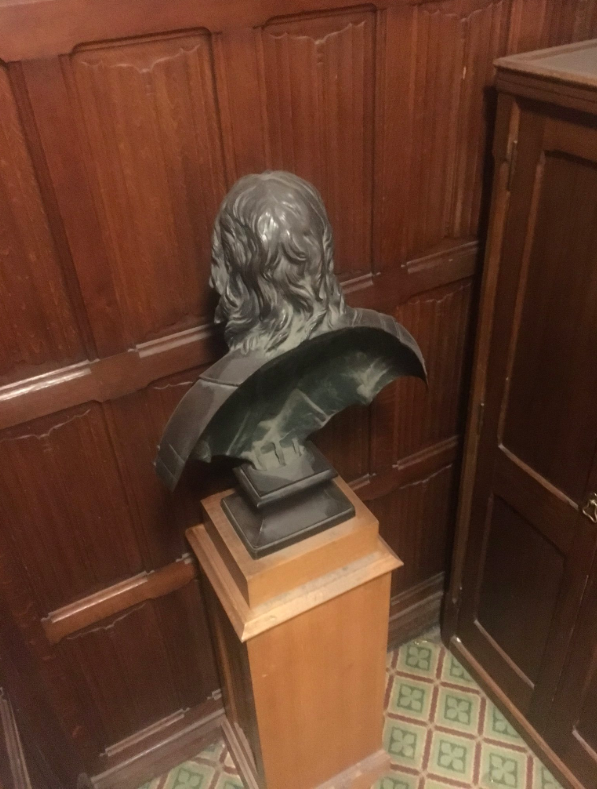
A historic bust in the UK parliament’s art collection has been moved in a bid to thwart whoever has been turning the sculpture of Oliver Cromwell to face the wall. An alarm has also been fitted to protect the bust of Cromwell.
The campaign against the bust of the controversial figure in British and Irish history has been ongoing for years, with Cromwell being swivelled back and forth by rival groups. The Labour Whips’ official Twitter account first chronicled the “Whodunit” in December 2017.
The tampering continued in the face of efforts from officials including cordoning it off and marking it with a sign reading “fragile—please do not touch.” Now, the culprit has finally been revealed as the Labour Party member Steve Pound, who told the Mail Online that colleagues had turned him in for the stunt.
Cromwell was a highly controversial figure after his bloody conquest of Ireland in the mid 1600s. He is celebrated in some quarters as a heroic military and political leader, who defended Parliament, but blamed by others for the massacre of Irish Catholics during the conquest of Ireland. Some call him the “butcher of Drogheda.”
Pound, who has an Irish mother and is the shadow minister for Northern Ireland, made a habit of turning the bust to face the wall in protest of its presence in the House of Commons.
The bust has been fitted with an alarm in its new location at offices in nearby 1 Parliament Street, which, much to his chagrin, Pound says is actually closer to his office than its previous haunt outside the members’ tea room. “Somebody’s got a sense of humor,” he said, adding, “His butcher stare gets me every morning when I come in.”
Pound still hopes the statue of Cromwell will be removed from parliament and says he is in “negotiations with authorities” about the matter.
But his strong views on the statue are not shared by all, even within his party. He has recognized that the Labour party leader Jeremy Corbyn does not share his hatred of Cromwell, and a senior party member also told the Mail Online that Pound was “being a total prick” about the statue.
As well as the bronze after the 1672 original by Edward Pierce that Pound objects to, there is an 18th-century marble bust of Cromwell by an unknown artist in the Lower Waiting Hall, while outside Parliament stands a larger-than-life sculpture by William Hamo Thornycroft installed at the end of the 19th century.
The British historian Andrew Roberts penned an op-ed in the Telegraph defending Cromwell’s reputation from Pound’s campaign, taking the view shared by some historians that his actions in Ireland were in line with the then-accepted rules of war. artnet News reached out to Pound for comment but did not hear back by press time.